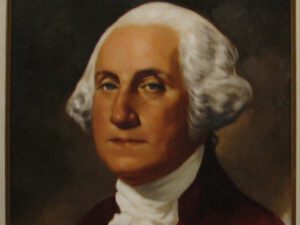[aio_button align=”right” animation=”none” color=”gray” size=”medium” icon=”none” text=”NEXT PAGE” relationship=”dofollow” url=”https://unrealfacts.com/16-strange-true-legal-facts-odd-things-occurred-legal-circles/2/”]
If there is one thing that can be peculiar, it’s the law. From weird laws to utterly humorous events, the law has something for everyone. But sometimes things can be so wacky that they make us all stand up and pay attention. So with no more ado, here are 16 strange but true legal facts, or things that have actually happened in the legal world.
1 The US Government Poisoned Alcohol During Prohibition
Leading our list of strange but true legal facts is the case of poisoning alcohol during Prohibition.
Prohibition was one of the most unpopular laws that has ever been introduced into the United States. The law made it illegal to sell, manufacture, posses, transport, import or export any alcohol, unless it was prescribed. The aim of prohibition was to reduce social problems and reduce the risk of exposure to alcohol related problems. While the intentions sounded noble, in reality is was disgracefully unpopular, and alcohol was still widely available.
Despite the almost blanket ban on alcoholic products in the US, it was still widely available through speakeasies, in international waters only three miles offshore, and by those who risked home brewing. Those who did try the home brew method faced the consequence of alcoholic poisoning if they didn’t distill their spirits correctly. And this did happen quite frequently. but even though unintentional alcoholic poisoning did happen, it pales into insignificance compared to what the government did to try and curb the sale and consumption of alcohol during this period.
During prohibition in the US, a lot of the alcohol the bootleggers got was from industrial sources, such as paint thinners and medical supplies. To combat this use, the US government ordered the manufacturers to lace the products with a deadly poison. It is thought that by the end of prohibition 10,000 people had died from the poisoning at the hands of their own government.
2 J. Edgar Hoover Had John Steinbeck Audited Every Year By The IRS
Former Director of the FBI, J. Edgar Hoover hated American author John Steinbeck so much he had him audited by the IRS every year. The reason Hoover hated Steinbeck so much is because he thought he was a communist. In reality Steinbeck was quite a proud patriot who tried to give those who were powerless a voice. Because of his personal views he became a political target of FBI Director Hoover. Since Steinbeck had done nothing criminally wrong, Hoover asked the IRS to audit him every year of his life, just to be politically annoying. I’m sorry, but that’s just being an asshole.
Although Steinbeck was not a communist, he had some very close ties to the movement. He had connections with the League of American Writers and the United States Communist Party’s John Reed Club for writers. He also had close contact with many left leaning authors, journalists and unions.
John Steinbeck is best known for his works Of Mice and Men and The Grapes of Wrath, and also for winning the Nobel Prize for Literature in 1962.
3 Some American Cities Had Ugly Laws
Today we live in a fairly relaxed society where a persons appearance is not offensive or a thing of amuspermt. But in the past things were very different. It is common knowledge that there were traveling freak shows, where the “performers” had physical deformities or abnormalities. In some US cities there were even laws preventing unsightly people from being seen in public!
Known as ugly laws, or unsightly beggar ordinances, the local laws made it illegal for “unsightly or disgusting” people to appear in public. Punishment for breaking the laws ranged from fines between $1 to $50 to imprisonment. The first of these ugly laws was introduced in San Francisco, California in 1867, and the last was repealed in Chicago in 1974.
4 The Length Of A Copyright Has Increased From 14 Years To Almost Forever
Today, when an invention or piece of work is created, the most common length of time that it will remain copyrighted material is the length of the creators life plus 70 years. After that time it will enter the public domain. But it has not always been that way though.
In the US in 1790, the term of a copyright was only 14 years. After 14 years the creator of the copyrighted material had the option to extend the term for an additional 14 years if they were still alive, or it would be in the public domain. But gradually over time it has increased to the current standard of life plus 70 years. In some cases though, such as with Peter Pan, it will be increased almost indefinitely.
5 Indiana Tried To Change The Value Of Pi
Pi, the mathematical constant of measuring the circumference of a circle had a run in with the law in Indiana in 1897. Bill #246, commonly known as the Pi Bill, was an attempt by the Indiana legislature to square the circle. Although no clear definitions for the value of pi were given in the proposed law, it is commonly believed the value may have been rounded up to 3.2, or down to 3.
The idea to square the circle was first proposed in 1894 by amateur mathematician Edwin J. Goodwin who introduced it to Indiana Representative Taylor I. Record. Record introduced it to the House with the long title “A Bill for an act introducing a new mathematical truth and offered as a contribution to education to be used only by the State of Indiana free of cost by paying any royalties whatever on the same, provided it is accepted and adopted by the official action of the Legislature of 1897″.
The Bill nearly became law too. It was stopped only after mathematics professors who were present in the legislature intervened to talk sense to the law makers.
6 In Arizona You Can Carry A Loaded Firearm, But Not Nunchucks
In the United States the personal right to weapons is protected by the 2nd amendment to the constitution as part of the Bill of Rights. Individual states can make laws surrounding weapons, such as licencing, permits and magazine capacity for firearms, however it must not infringe upon the individuals right to bear arms. On the odd occasion though you will find odd weapons laws that make little sense, like in Arizona where it is legal to carry a deadly weapon, but illegal to possess nunchucks.
In Arizona it is perfectly legal for an adult, provided they are not a prohibited person, to carry a loaded firearm in public. Generally it must be in some sort of holster or scabbard, but the law does not specifically say so. It must not constitute reckless display. Adults over the age of 21 are even permitted to carry the firearms concealed. There are some restrictions to the types of firearms that a person can carry.
Now compare that example to this one. We are still in the state of Arizona. While it is perfectly legal for a person to carry a concealed firearm, nunchucks are a prohibited weapon. Perhaps someone should remind the state legislators that nunchucks are technically arms. Perhaps they saw the above video of Bruce Lee in action, but then again there is no one quite like Bruce Lee.
7 In England The Speaker Of The house Is Not Allowed to Speak
Ok, so this is really a technicality. In reality the speaker of the House can and does speak, and quite often. Where the truth of this fact comes in is that in England the speaker of the Holuse is not allowed to speak along party lines, or participate in any debate. Lets explain.
The Speaker of the House in England is the presiding judge over proceedings in the House of Commons, the Parliament. The Speakers role is to maintain order and make sure the debate flows. The Speaker will usually come from one of the political parties, and most often from the government benches, but when taking the chair of Speaker must renounce all affiliation and allegiance with that party.
The reason the Speaker is not allowed to speak is that they can not contribute to debate or vote, unless in a break tie. They will speak, only to maintain order or to chastise a member of parliament.
8 Tic Tacs Contain No Sugar In The USA
In the US Tic Tacs contain no sugar. Well that’s what the label on a box of Tic Tacs will have you believe. The reason they have no sugar is because they can sneak through a loop hole in the law.
A single Tic Tac is made mainly of sugar and weight just under 0.5 grams. The regulations in the US state that if a product contains less than 0.5 grams of sugar per serve it is acceptable to express the amount of sugar as being zero. Each single Tic Tac is one serving, so as far as the regulations are concerned the sugary sweet contains no sugar.
[aio_button align=”right” animation=”none” color=”gray” size=”large” icon=”none” text=”NEXT PAGE” relationship=”dofollow” url=”https://unrealfacts.com/16-strange-true-legal-facts-odd-things-occurred-legal-circles/2/”]













